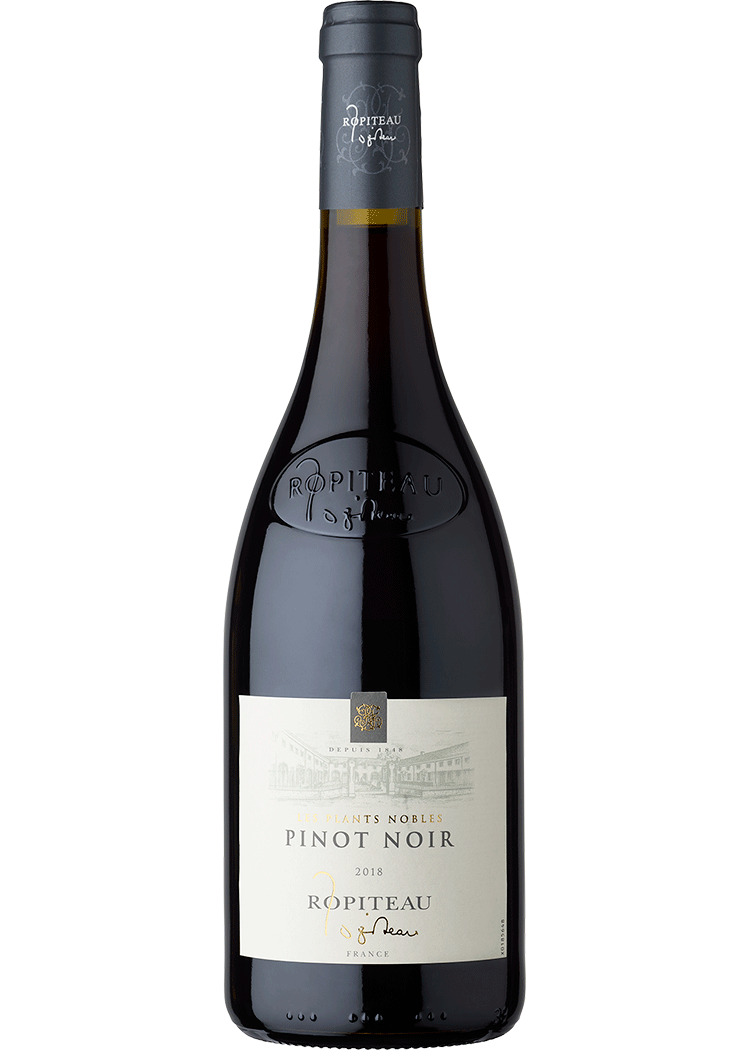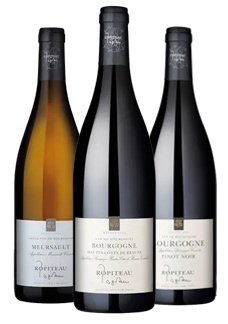tap to enlarge
Ropiteau Pinot Noir
750ml
$13.99
*Price, vintage and availability may vary by store.
*Price, vintage and availability may vary by store.
Product Highlights
France- Earthy, smooth, cherry and berry notes. A great candidate for your house red this summer. A delish match for grilled veggies, pork and bruschetta. Established in 1848, Ropiteau Freres has a long history of making great Pinot Noir.
CherryRed Fruit
Product Details
OVERVIEW
Producer Story

Jean-Charles’ lifelong passion for wine began as a child. His parents founded Maison Ropiteau with an innovative and entrepreneurial spirit in one of the most traditional winegrowing regions in the world. The family vineyard sits in the heart of Burgundy in the village of Meursault where they have been hand-crafting Chardonnay and Pinot Noir since 1940.
Today, the family collection includes wineries in some of the world’s most important regions--from Burgundy to the South of France and to California’s Napa and Russian River Valleys. But no matter where the wine is made, their philosophy of respect and reverence for the soul of the soil and the vineyard—climat-worship—is reflected in every bottle.
Geography
For centuries, French wines have set standards to inspire winemakers around the world. No other country has France’s long history of fine wine production, which has helped define wine styles around the world.
How significant is France in the world of wine? The most popular international grape varieties, from Chardonnay to Merlot to Cabernet Sauvignon, are native to France. In many years France produces (and consumes!) more wine than any other country. Its production and export of fine wines is unmatched.
The ancient Greeks were the first to take advantage of France’s potential for wine production, as they planted vines in their colonies along the Mediterranean coastline more than 2,500 years ago. After the Romans conquered Gaul in 51 B.C., they took vines and winemaking practices north across the land. In the following centuries, Christian monasteries became centers for viticulture, and their monks made pioneering advances in both winemaking and distilling. By the Middle Ages, the English had already recognized the excellence of wines of France, and while they controlled Bordeaux they expanded the region’s existing vineyards to supply the brand-new export market.
Varietal / Type

